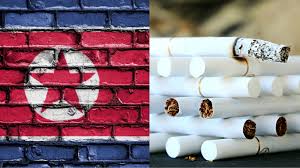British American Tobacco Pays $629 Million to Settle Violations of North Korea Sanctions (Part I of II)

The Justice Department warned companies that sanctions enforcement is the “new FCPA.” DOJ just delivered its first salvo to back up its message.
BAT’s Singapore subsidiary plead guilty to a one-count Information charging BAT and its subsidiary with conspiracy to commit bank fraud and to violate sanctions. BAT entered into a deferred prosecution agreement (“DPA”).

OFAC also cited the fact that BAT tried to hide the transactions and payments “through a complex remittance structure that relied on an opaque series of front companies. BAT’s upper management has “actual knowledge” about the “conspiracy.”
The settlements arose from BAT’s conduct starting in 2007, when BAT spun off its North Korea sales business to a third-party company, claiming that it was no longer involved in North Korea tobacco sales. In reality, however, BAT continued to conduct business in North Korea through the third-party company and BAT’s subsidiary maintained control over all relevant aspects of the North Korean business.
Between 2007 and 2017, BAT processed payment for tobacco sold to North Korean entities through the third-party company, totaling $418 million in U.S. dollars. To make the payments to BAT, North Korean purchasers used front companies so that U.S. banks would not know about the connection to North Korea.
U.S. financial institutions processed at least 310 transactions worth approximately $74 million. The transactions resulted in an estimated $700 million in revenue for the North Korean manufacturers, one of which was owned by the North Korean military.

Cigarette trafficking generates significant revenue for North Korea’s WMD program. In addition, counterfeit cigarettes are a major source of income to the North Korean regime since smuggled tobacco products generate revenue of up to $20 for every $1 spent in cost.
The U.S. State Department announced a $5 million reward for defendant Sim, and a reward of $500,000 for the other two Chinese defendants, respectively, for information leading to the capture of these charged defendants. Defendant Sim was designated as a Specially Designated National (SDN) on April 24, 2023.
BAT cooperated with the investigation by suspending the statute of limitations, providing detailed document productions and prompt responses to OFAC requests.
Under the OFAC settlement, BAT agreed to maintain sanctions compliance measures for the next five years, including by ensuring its management promotes a “culture of compliance.” BAT must also conduct an OFAC risk assessment, maintain written compliance policies and procedures, conduct internal and external audits, train its staff and submit an annual compliance certification.














